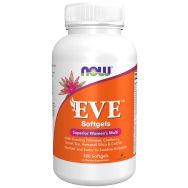category name category name category name
3 reasons why men and women need different supplements

In general, most multivitamins designed for men and women aren’t really that different. Most types contain the same blend of vitamins and minerals at largely the same doses. The main difference, though, comes down to just a few specific minerals which you need to be aware of.
One of the largest differences between men and women’s multivitamins is iron. It is recommended that women take over twice as much iron as men every day if they are premenopausal, since they lose iron through menstruation. However, an excess of iron can build up in the body and leave deposits in your organs, which is why men shouldn’t take the amount of iron recommended to women.
Besides iron, there are usually a few other common differences between men and women’s vitamins. Men also tend to require a slightly higher dose of zinc than women.
1) The effects of taking the wrong gender multivitamin
Since men and women’s multivitamins are formulated differently, will you get sick if you take the wrong kind? Not usually. Since most of the vitamin and mineral doses are very similar—if not completely the same—taking a daily multivitamin designed for the opposite sex every once in a while won’t hurt you and will still give you the right amount of vitamins and minerals you need each day. However, long-term use may cause some negative effects like mineral build-up, particularly in men who are getting too much iron.
In some cases, men with iron deficiencies may actually be instructed by their physicians to take a woman’s daily multivitamin if they are also in need of other vitamin and mineral support. In other cases, an individual iron supplement would do just fine.
2) Factor in your age
Age groups also matter when choosing a multivitamin! Not all multivitamins made for males or females will be appropriate for you because different age groups have different dosage recommendations.
For example, multivitamins made for children and the elderly usually have higher levels of micronutrients like calcium that adults below the age of 50 may not need as much of. Elderly men and women also usually need higher levels of vitamin D. Additionally, menopausal women do not require as much iron as women who are actively menstruating do.
3) What about individual supplements?
Individual vitamin or mineral supplements aren’t usually gendered. If you find that you have a deficiency and your practitioner recommends that you take a particular individual supplement, you should be able to pick up a standard bottle and take the recommended dosage.
The gendered multivitamins exist because of the blend of vitamins and minerals that have different dosages.
Looking for advice?
Whether you're new to supplements, or would like to discuss your current routine, you can now book a free consultation with Neha, our Nutritional Therapist.
DISCLAIMER: The content in this blog is not intended to be a substitute for professional medical advice, diagnosis, or treatment. Always seek the advice of your doctor or qualified healthcare provider with any questions you may have. Never disregard professional medical advice or delay in seeking it because of something you have read on blogs.













